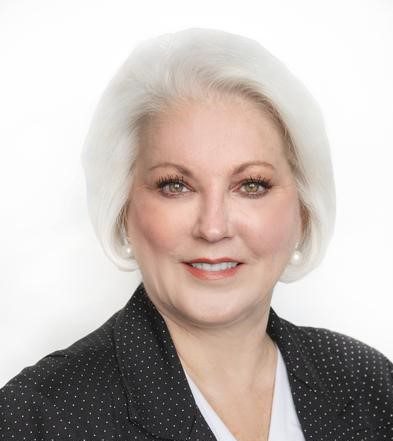Veterinarians who own their practice and are considering a sale to corporate will likely be making one of the biggest decisions of their life when it comes time to choose their buyer. If they are lucky enough to have multiple offers on the table, it often boils down to which buyer is offering the highest purchase price. For those owners who are counting on the funds from their sale to enable them to retire down the road, the final number is important. However, some owners find themselves with two very similar valuations of their practice, but offers that are structured very differently.
The main terms contained in a typical Letter of Intent (an “LOI”) from a corporate buyer are the following: the purchase price and how the allocation of the purchase price is structured; the owner(s) employment terms; and, unless it is owned by a 3rd party, the facility lease agreement terms (or sale price if the real estate is being sold). The document can vary greatly from corporate to corporate, and sometimes there are additional details included for things such as the buyer providing funds for employee signing bonuses. The LOI should outline not only the important aspects of the deal but also some of the details regarding the transaction documents, like the blueprint on a house, which will then be memorialized in the purchase agreement and help facilitate the negotiation.
Purchase Price Allocation
Cash
As the saying goes “Cash is king”. That being said, there are many different ways to structure a practice sale and what is best for the owner depends on their particular succession plan. Do you want to take the money and run, or are you in it for the long haul? Many owners prefer a sale that is 100% cash at closing. It’s a sure thing and they get all their money up front. However, if a corporate buyer determines that they are not comfortable with the level of risk in the deal, they are going to take steps to hold onto some of their money and protect themselves.
One way they do this is to include an earnout that requires the practice to hit a target revenue total in a certain time period. This means that the owner would have to wait a certain amount of time (to be determined at the LOI stage) for that portion of the funds to be released only if the practice did well. If the practice doesn’t perform well enough on the other end, then they may not get it at all. The buyers see an earnout as an incentive for an owner to keep working hard at their practice after closing.
Some corporates use a promissory note in their structure, or even multiple subordinated notes and upside subordinated notes which can get very complicated. An owner should definitely have those reviewed by a legal team that has experience in the field and that can also help him assess whether the promissory notes might have some potential tax benefits, to avoid a higher tax bracket and allowing the purchase price to be allocated over a period of time.
Owner Equity
If you would like to reap the benefits of your hard work after closing, consider a joint venture structure. Some owners elect to retain a minority portion of ownership in their own practice, therefore, investing in the business that they will continue to help build over the upcoming years.
For those who are not afraid of a little gamble, another option would be to roll over a portion of the funds from the sale into the parent company at the highest level. Depending on the corporate buyer, this is not always an option and some corporates only allow equity at the lower level in the owner’s practice specifically, while others make it mandatory for the owner to invest a percentage of the purchase price (i.e., 10%). Keep in mind that the equity option does not come with any guarantees and an owner should view it as a bonus.
Private equity is a risky industry and some say that you would be safer gambling at a casino in Las Vegas. However, some owners have done very well for themselves after their buyer had an event. As long as the deal is structured with a large enough portion of cash at closing, the equity you receive could just be the icing on the cake.
Other Equity Options
Owners may also want to consider whether the associate veterinarians at the practice would be interested in buying into the new company. There are corporates that provide an option for associates to buy equity, and this may be attractive if there is a veterinarian on staff who would like some ownership, but cannot secure a loan large enough to buy the entire practice. It also makes them vested in the practice, more willing to sign an employment agreement with the buyer, and less likely to leave after closing. In today’s market where there are not enough veterinarians and numerous practices are short-handed, both private owners and corporates are looking for anything that promotes the retention of staff. Unfortunately, this option is not popular amongst associates whom too often are faced with having to sign numerous complicated equity documents including a subscription agreement which provides for a much larger non-compete than the one in their employment agreement.
Owner Employment Terms
As a condition of the sale, most buyers will require an owner to sign an employment agreement at closing that obligates the veterinarian to work for the hospital for a minimum number of years. Since the buyer will become the owner’s boss after closing, owners should do their due diligence to ensure that the company chosen has a “management style” that is a good fit for their personality.
Owners should think about what they plan on doing once they no longer work for the practice. If they do not intend to retire, then the noncompete that is typically included in their employment agreement is going to affect where they can practice medicine down the road. They should pay close attention to the restrictive area, as well as the specific services that are prohibited. For example, if the practice did not offer clients boarding services, then it should not be included in the owner’s noncompete. Maybe the owner would like to open a kennel business later in life?
Some owners are able to include specific exceptions to their noncompete such as volunteer work at a local animal shelter. If the owner’s plan is to retire and move to an island far away, then a noncompete is a nonissue. But for the owner that would like to do relief work at a friend’s hospital in the next town over, that noncompete could be a major road block.
Buyers often include a noncompete in both the purchase agreement and the owner’s employment agreement. If there is equity involved, there is typically a subscription agreement or joinder agreement that has an additional noncompete that is much stricter and will remain in force for as long as the equity is owned. Those documents are not usually negotiable so it’s something to consider for those younger owners that plan to work for a while.
Facility
If the owner plans to retain ownership of their real estate, they will become the landlord to their corporate buyer and sign a lease agreement at closing. For those owners that choose to sell their real estate, many corporate buyers partner up with a separate real estate buying company. The two transactions typically occur separately but close on the same day, and often containing clauses in their purchase agreements that one transaction cannot occur without the other.
Conclusion
Now is an exciting time to be a veterinary practice owner. The market is still active with corporate consolidators looking to buy practices all over the country. For owners that have entered the succession planning phase of their veterinary career, corporate acquisition may be a good exit strategy. The best way to prepare for the process is to gather a team of professionals who have experience working within the veterinary industry including legal counsel, a financial advisor and a certified public accountant who is familiar with the practice’s books. An owner will benefit greatly from having these advisors on hand to help them decide on a corporate buyer and negotiate their LOI which will inevitably become the blueprint for their purchase agreement.









